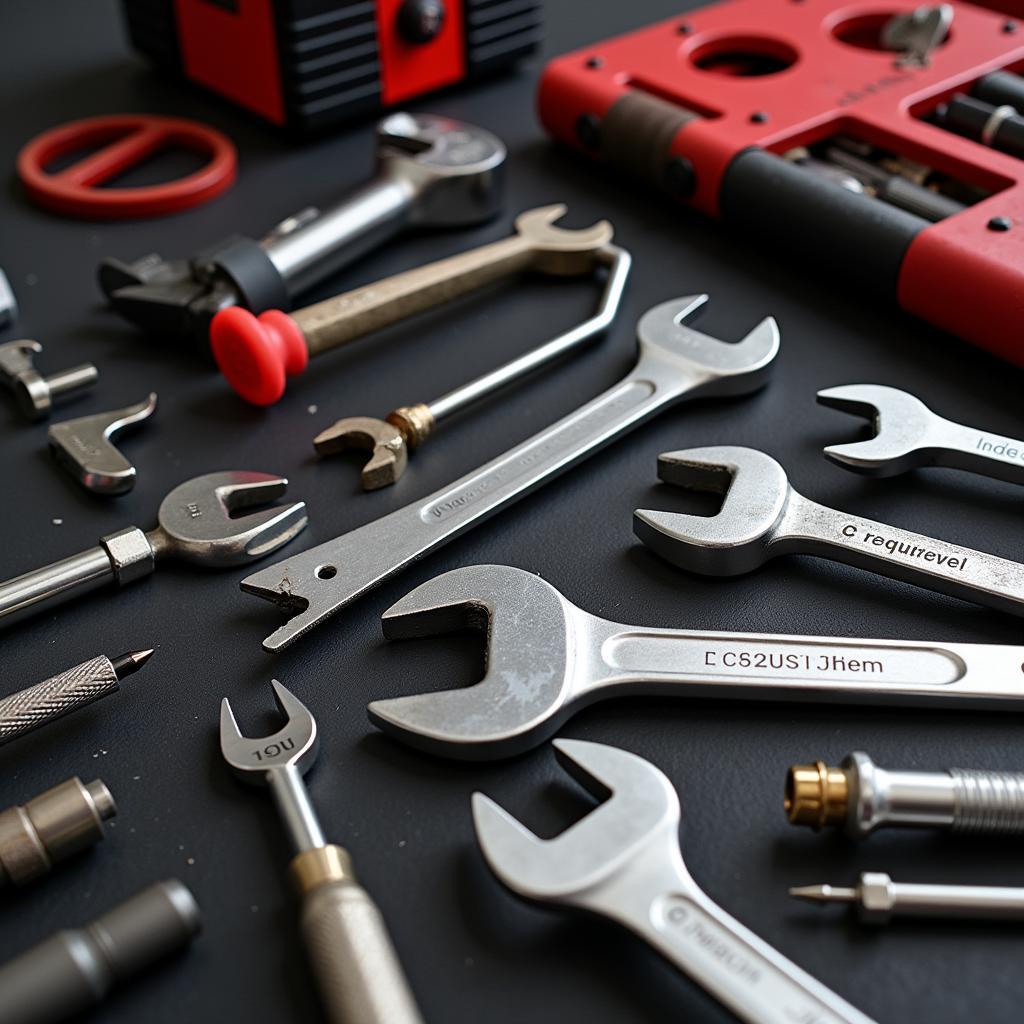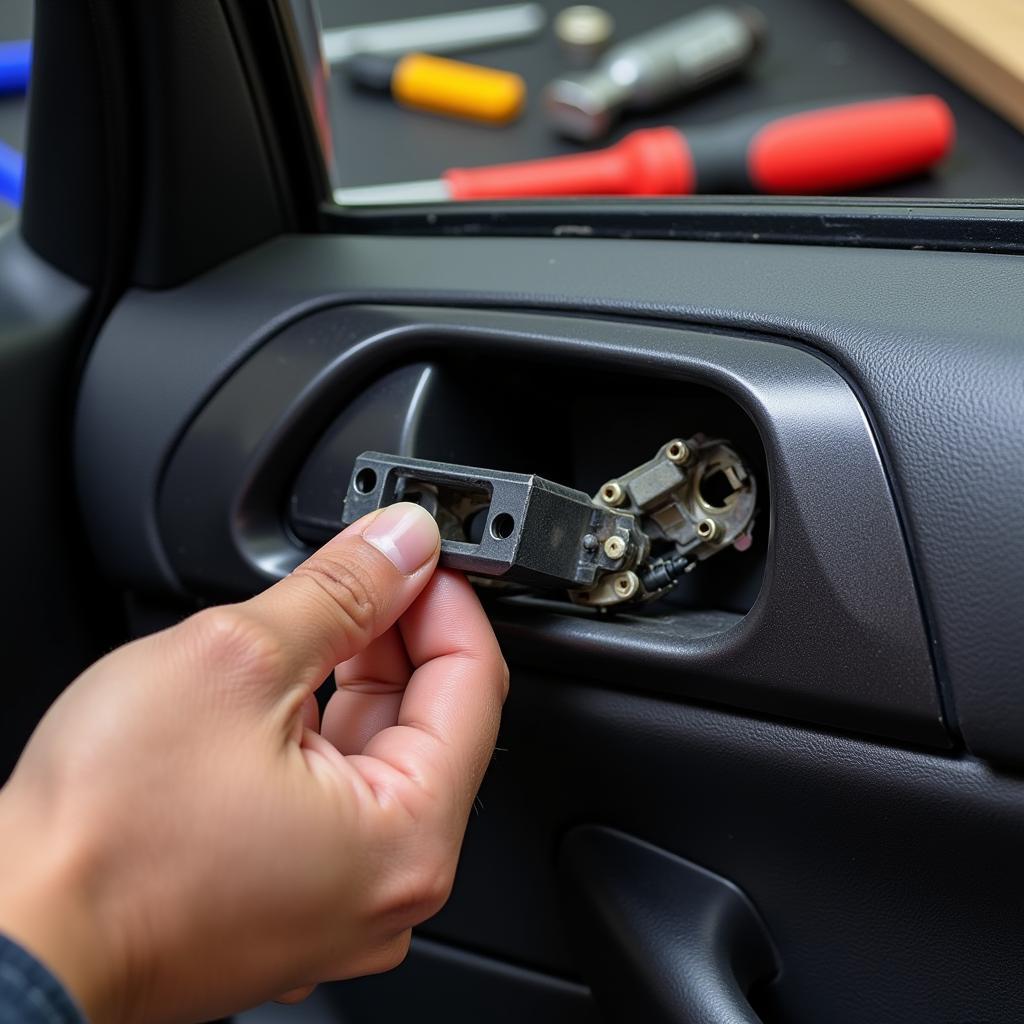Flipping a car is a terrifying event, and it’s something that everyone wants to avoid. While most car accidents are not due to flipping, there are some mechanical issues that can increase the risk of a rollover. Understanding these problems can help you keep yourself and your passengers safe.
Causes of Car Rollovers
The most common causes of car rollovers include:
- Loss of control: This can be due to factors like speeding, driving on icy or wet roads, or sudden swerving.
- Vehicle instability: Certain vehicle designs, particularly those with a high center of gravity, are more susceptible to rollovers.
- Mechanical issues: These can contribute to loss of control or affect the vehicle’s stability, increasing the chances of a rollover.
Mechanical Problems That Can Cause a Car to Flip
Here are some mechanical problems that can make a car more likely to flip:
1. Tire Problems
- Uneven tire wear: This can cause your car to lose traction and make it difficult to control.
- Underinflated tires: This reduces the contact patch between the tire and the road, making the car more susceptible to losing control.
- Overinflated tires: While less common, overinflated tires can make the car feel more rigid and prone to bouncing, increasing the risk of rollovers, especially during sudden maneuvers.
- Blowout: This sudden loss of tire pressure can make the car difficult to control and increases the likelihood of a rollover.
“Uneven tire wear is a common cause of car rollovers, and it’s important to have your tires inspected regularly.” – Mark Johnson, Master Automotive Technician
2. Suspension Issues
- Worn-out shock absorbers: These components help dampen the car’s movement, and worn-out shock absorbers can lead to excessive bouncing, making the car unstable and more likely to roll.
- Faulty steering components: A malfunctioning steering system can make it difficult to control the car, especially during sudden maneuvers.
- Loose suspension components: This can lead to excessive play in the suspension, causing the car to become unstable and more prone to tipping.
- Damaged wheel bearings: This can lead to a loss of wheel control and increase the risk of a rollover.
“Damaged wheel bearings can lead to a sudden loss of steering control, making it very dangerous.” – John Davis, Certified Automotive Mechanic
3. Braking System Problems
- Faulty brakes: This can cause the car to lose braking power and increase the risk of a rollover during an emergency stop.
- Uneven braking force: This can cause the car to veer off course and increase the risk of a rollover, especially during heavy braking.
- Brake line leaks: This can lead to a loss of brake fluid and cause brake failure.
“You should never ignore any warning signs from your car’s braking system, as this can have serious consequences.” – Sarah Lee, Automotive Engineer
4. Steering Problems
- Power steering failure: This can make it very difficult to steer the car, especially at higher speeds or during emergency maneuvers.
- Faulty steering rack: This can cause the steering to feel loose or unresponsive, increasing the risk of losing control.
- Bent steering components: This can affect the alignment of the wheels, making the car difficult to control.
“If you experience any sudden changes in your car’s steering, it’s important to have it checked out immediately.” – Michael Brown, Certified Master Technician
Preventative Measures to Minimize Risks
- Regular maintenance: Schedule regular inspections of your car’s tires, brakes, suspension, and steering system.
- Replace worn-out parts: Don’t delay replacing worn-out components, as they can significantly impact your car’s safety.
- Avoid aggressive driving: Speeding, sudden maneuvers, and driving on icy or wet roads increase the risk of rollovers.
- Pay attention to warning lights: If your car’s dashboard lights indicate problems with your brakes, steering, or suspension, address the issue immediately.
Conclusion
While car accidents can happen for various reasons, understanding the mechanical problems that can lead to rollovers can help you take proactive steps to prevent such incidents. By performing regular maintenance and addressing any issues promptly, you can significantly reduce the risk of a rollover and ensure a safe driving experience for yourself and your passengers.
If you have any concerns about your car’s safety or if you suspect a mechanical problem, don’t hesitate to contact us for professional diagnosis and repair. We’re dedicated to helping you keep your car in optimal condition and ensure your safety on the road.
AutoTipPro
+1 (641) 206-8880
500 N St Mary’s St, San Antonio, TX 78205, United States
FAQ
Q: Can I drive a car with a blowout safely?
A: No, it is extremely dangerous to drive with a blowout. Immediately pull over to a safe location and have the tire repaired or replaced.
Q: Can I ignore a warning light on my dashboard?
A: It’s never a good idea to ignore warning lights on your dashboard. They are designed to alert you to potential problems that could be dangerous.
Q: How often should I have my car’s suspension inspected?
A: It’s recommended to have your car’s suspension inspected at least once a year, or more frequently if you notice any unusual noises or handling issues.
Q: How can I tell if my tires are underinflated?
A: You can check your tires’ pressure with a tire pressure gauge. You can find the recommended tire pressure for your vehicle in your owner’s manual.
Q: Can I drive with a faulty steering system?
A: It’s highly unsafe to drive with a faulty steering system. Seek professional help and repair the issue immediately.






Leave a Reply